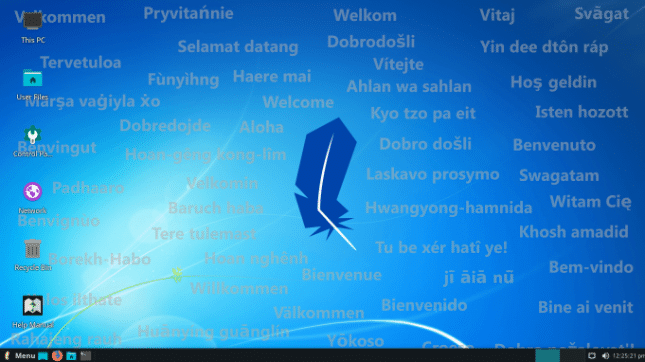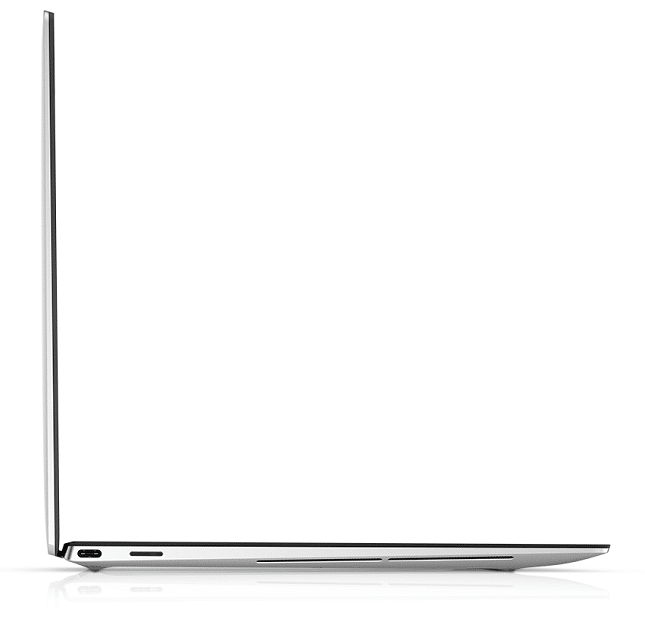
Windows 7 is dead -- switch to the Ubuntu-based Linux Lite 4.8 NOW!
Windows 7 is dead. Well, technically it will meet its demise tomorrow. On January 14th, the wildly popular operating system reaches "End of Life" status. This means Microsoft will stop supporting it. The company obviously hopes all remaining Windows 7 users will upgrade to Windows 10, but not everyone plans to do that. While Windows 10 is actually a very good operating system, many folks are put off by the overwhelming number of updates and aggressive telemetry. Understandably, some people feel that Microsoft's data collection is tantamount to spying.
Ultimately, using Windows 7 after tomorrow is foolish. Look, you should never use an unsupported operating system -- it is simply bad practice. If you refuse to upgrade to Windows 10, your best bet is to opt for a Linux-based operating system. There are many of those from which to choose, such as Ubuntu, Mint, and Fedora to name a few. There is one such Linux distribution, however, that is designed to run on older hardware and is focused on providing a welcoming experience to Windows 7 switchers. Called "Linux Lite," it has a user interface that will feel familiar to Windows 7 users. Today, Linux Lite 4.8 is released.

Warning: Windows 7 is losing support, but so is this popular version of Ubuntu Linux!
Windows 7 is a great operating system -- there is a reason so many computer users have clung to it. Well, we can also thank the terrible Windows 8 for scaring people from upgrading, I suppose. Windows 8.1 was better, and Windows 10 is actually pretty good, but neither are loved like Windows 7 is.
Sadly, Microsoft is killing Windows 7 for most users -- it reaches end of life status in just two days, on January 14th. After that date, Windows 7 will be unsupported (except for businesses that choose to pay for extended support) -- you'd have to be a fool to continue using that operating system. You should upgrade to Windows 10 ASAP or switch to a Linux-based OS.

Get 'Kali Linux -- An Ethical Hacker's Cookbook, 2nd Edition' ($44.99 value) FREE for a limited time
Many organizations have been affected by recent cyber events. At the current rate of hacking, it has become more important than ever to pentest your environment in order to ensure advanced-level security.
Kali Linux -- An Ethical Hacker's Cookbook from Packt Publishing is packed with practical recipes that will get you off to a strong start by introducing you to the installation and configuration of Kali Linux, which will help you to perform your tests.

Firefox 72 improves site notifications tool, rolls out picture-in-picture video to Mac and Linux
Mozilla has released Firefox 72.0 for desktop, along with Firefox for Android 68.4 and Firefox ESR 68.4.0.
Mac and Linux users gain the picture-in-picture video feature introduced for Windows in Firefox 71. Fingerprinting scripts are now blocked as standard with this new release, while intrusive pop-up notifications from websites have been confined to the Address Bar to prevent disruption when browsing.

SuperTuxKart 1.1 is here -- download the free open source Mario Kart game clone for Linux, Windows, and Mac
There are many excellent open source software projects these days, such as the Linux kernel, GIMP, and LibreOffice to name a few. But what about games? Yes, there are open source games, one of which is SuperTuxKart. If you aren't familiar, STK is essentially an open source Mario Kart game clone. While it is very popular with Linux users, it is also available for Windows and macOS.
Today, SuperTuxKart reaches version 1.1. While it features bug fixes and other improvements, the real star of the update is the addition of a new arena called "Pumpkin Park."

Electronic Arts is banning some Linux gamers from Battlefield V
Some Linux gamers who are using Wine to play Battlefield V are finding themselves permanently banned from the game.
Player using the DXVK package are falling foul of Electronic Arts' anti-cheat system, seemingly because the DXVK Direct3D DLLs -- used to render 3D scenes in Wine -- are detected, for some reason, as being a cheat tool.

Dell announces XPS 13 (2020) Developer Edition with Ubuntu Linux and 32GB RAM
Dell's XPS 13 is a legendary laptop, not just with Windows users, but hardcore Linux fans too. You see, through the company's Project Sputnik program, Dell has long provided special "Developer Edition" variants of its laptops that come pre-loaded with Ubuntu. Operating system aside, the XPS 13 has been highly lauded for its build quality, attention to detail, and top specifications. Ultimately, you buy an XPS 13 and always know you are getting a quality laptop.
Today, Dell announces the newest XPS 13 Developer Edition and it looks incredible. This 10th generation computer (which is being dubbed "2020") is thinner and smaller while offering even better specifications, such as an improved 13.4-inch display (with 16:10 aspect ratio) and the ability to be configured with up to 32GB -- double the previous generation's maximum memory. There are no USB-A ports, sadly, but it does have two Thunderbolt 3 ports, a 3.5mm audio jack, and a micro SD card reader. You get thinner bezels and a larger trackpad too. Believe it or not, Dell is even promising proper fingerprint reader support in a future software update, meaning you can finally secure Ubuntu with biometrics!

How to install GIMP on Linux Mint 19.3 Tricia
Linux Mint is a great operating system, but with the most recent version (19.3 "Tricia"), there was some shocking news -- GIMP (GNU Image Manipulation Program) was being removed! Crazy, right? I mean, of all of the great software available for Linux, GIMP is one of the best. It is an essential image editing tool that rivals Adobe Photoshop.
So, why did Linux Mint remove it as a pre-installed program? The developers thought the software was too advanced for newer Linux users. While I think that is a bit of nonsense, I can understand why the Mint developers would want to cater to beginners. Thankfully, it is totally easy to install GIMP on a new Linux Mint 19.3 installation.

Gentoo-based Calculate Linux 20 now available for download
With 2019 almost over, we turn our sights to a new decade with 2020. Soon we will celebrate the new year by partying, eating good food, and watching the Times Square Ball drop on TV. Sadly, Dick Clark is dead, but his legacy lives on through Ryan Seacrest.
But what if you want to celebrate 2020 in a more... nerdier way? Well, I have some good news. Calculate Linux 20 is now available for download! Yes, the Gentoo-based operating system is ready to be installed on your computer. Since it is version 20, that makes it perfect for ringing in 2020.

Cloud predictions for 2020
Multi-cloud environments have been a hot topic for the last year. Already, businesses have been realizing the benefits of a vendor-agnostic approach, which not only minimizes costs but gives them the freedom to innovate. However, there are a couple of aspects of operations which will be key in ensuring multi-cloud remains viable for enterprises in the long-term.
Despite the freedom which comes with a vendor neutral ecosystem, orchestrators haven’t yet overcome the headache associated with migrating workloads between these different cloud infrastructures. The past year saw major cloud players like IBM making acquisitions to address this, but as yet, they haven’t found a successful solution. Over the next year, this will be a priority for enterprises looking to remove the bottlenecks in their CI/CD pipeline. Organizations will invest in services which can help them harness a multi-cloud ecosystem, by supporting fast deployment, scalability, integration and operational tasks across public and private clouds.

Ubuntu-based Peppermint 10 Respin Linux distribution available for download
Back in May of 2019, Peppermint 10 was released. The Ubuntu-based operating system is great for those switching from Windows, but also, it makes a fine operating system for Linux experts too. It may not be as popular as, say, Linux Mint, but it is still a solid option.
Today, fans of Peppermint -- and the entire Linux community, really -- have reason to celebrate. No, version 11 of the operating system is not released. However, Peppermint 10 Respin is now available for download!

Linux Mint 19.3 Tricia is here, but GIMP and VLC have been removed!
The Linux Mint developers vowed to release a new version of their operating system before Christmas, and today, they fulfill that promise. Yes, Linux Mint 19.3 Tricia is finally here, a full week before the big Christmas holiday -- a very welcome early gift.
Linux Mint 19.3 Tricia can be had with your choice of three excellent desktop environments -- Cinnamon (4.4), MATE (1.22), and Xfce (4.14). I highly recommend users with modern computers try Cinnamon first -- it is the prettiest of the trio, while the other two DEs are designed for more meager PCs. With that said, even those with high-end machines sometimes opt for Xfce and Mate because they simply prefer them.

Google slaps blocks on some Linux web browsers
It may seem that the big names of tech are eager to embrace -- and to be seen embracing -- Linux, but Google is being a little selective.
Users of the Konqueror, Falkon and Qutebrowser web browsers for Linux-based operating systems have reported that they are unable to log into Google services. What's strange is that not all users of these browsers are affected, but many people are seeing a warning when they try to use them.

Zorin OS 15.1 Linux distro is ready to replace Microsoft's dying Windows 7 on your PC
Windows 7's death is imminent -- support for the popular operating system ends next month on January 14, making it extremely dangerous to use from a security standpoint after that date. This is very unfortunate for the millions of computer users that don't want to switch to the much-maligned Windows 10. Thankfully, in 2019, you don't have to run Windows anymore -- Linux is a totally legitimate option for both business and home use these days. Hell, even the Windows-maker sees the writing on the wall -- the company recently released its wildly popular Office 365 program, Microsoft Teams, for Linux.
If you are ready to ditch the soon-to-be-unsupported Windows 7 for a more secure Linux-based operating system, you have plenty of great options. One of the best choices, however, is Zorin OS -- a Linux distribution that specifically targets people switching from Windows. Today, the latest version of that operating system, Zorin OS 15.1, is released to the world.

Linux users get an early Christmas gift -- Microsoft Teams
Modern Linux users have it pretty good. In 2019, there are many major players supporting desktop operating systems running the open source kernel. Years ago, it felt like Linux on the desktop was a second class citizen -- switching from Windows was not as easy as it is today. These days, it is totally possible to forgo Microsoft's desktop operating system and still have a high quality computing experience with top-notch software, including video editing and PC gaming.
To show just how far we've come, Microsoft today brings an essential Office 365 program to Linux. No, it isn't Word, Excel, or PowerPoint -- that would be a true miracle. Actually, it is one of the newer Office applications that is seeing a surge in popularity -- Microsoft Teams. This is a top-notch communication and collaboration service. Depending on who you believe, Teams actually has more users than Slack -- a very impressive feat. Now, Microsoft Teams joins Slack on the Linux desktop!
